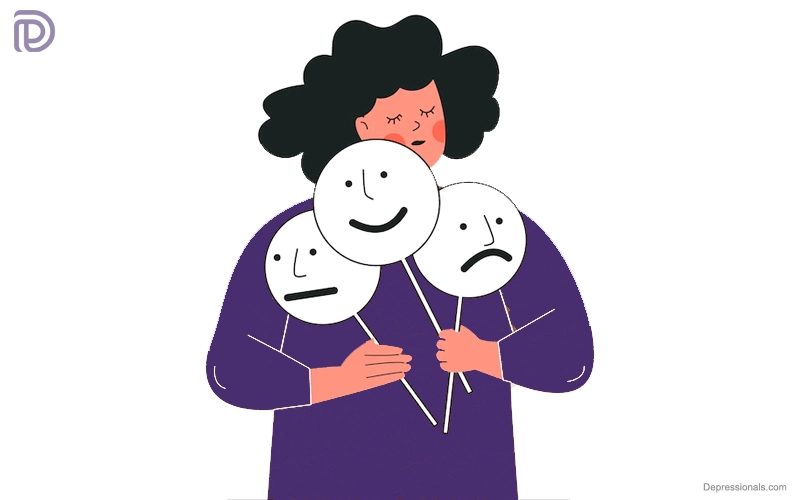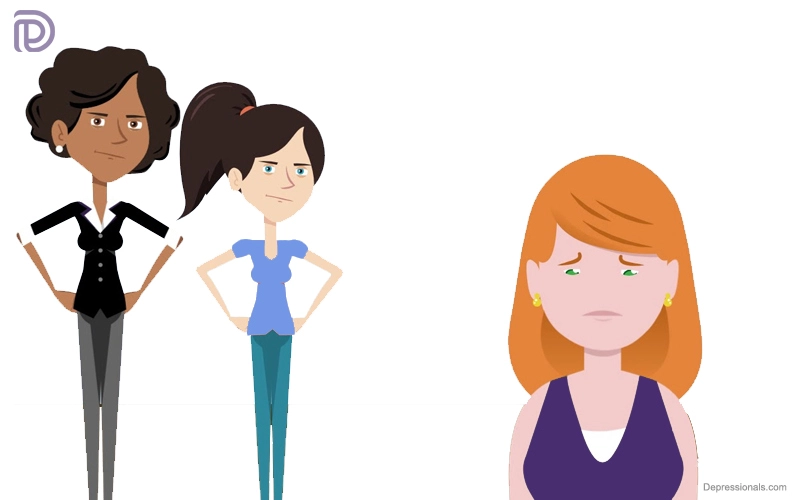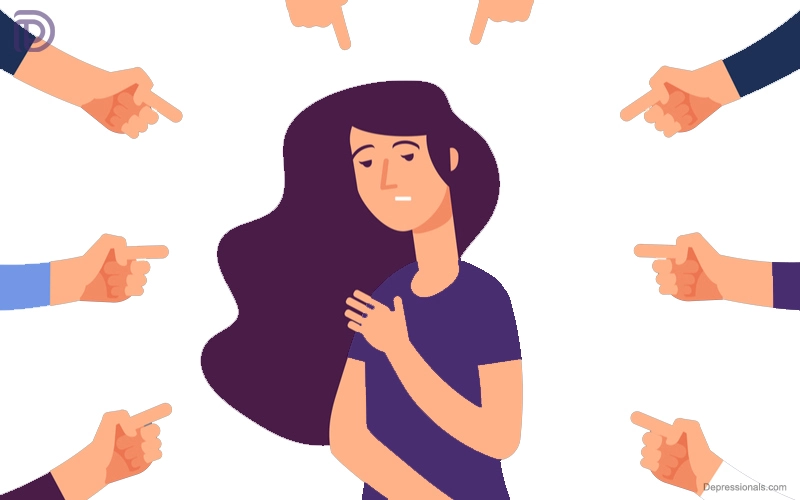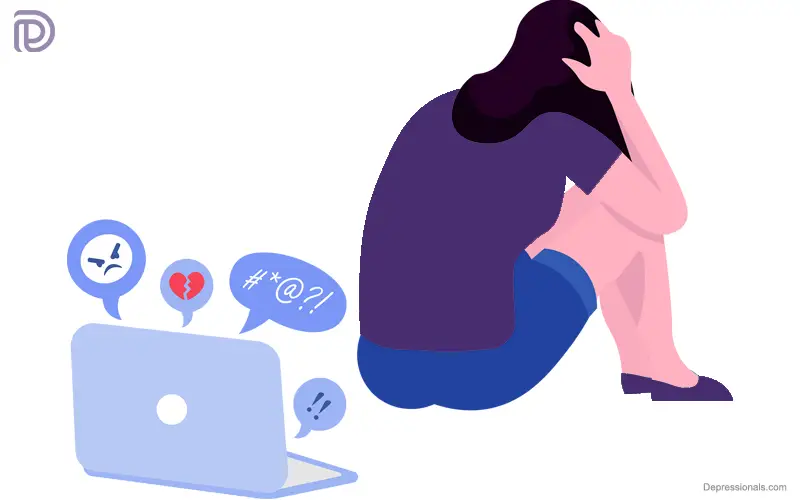Is it possible to change your personality?
Throughout your life, you must experience personality change. It is normal to experience mood swings from time to time. Changes in personality, however, can be a symptom of a medical condition or mental problem.
There are a number of ways in which a personality change can be demonstrated.
For example, an unusual behavior maybe indicative of a personality change if it differs from how you usually behave under the said circumstances.
Behaviors that are significantly different from how they usually behave in similar circumstances, such as moodiness, aggression, or euphoria, hint at a change in character.
Read: Signs of a Materialistic Person
Personality change examples
People who show nonchalance in situations that are normally stressful or aggravating are examples of personalities that have changed.
For instance, you might be pleased to get bad news.
What causes sudden changes in personality?
An injury or illness may cause a sudden change in personality, although gradual changes are not uncommon.
If you are concerned about strange or unusual behavior, you should look for the following signs:
- Low pulse rate
- Clammy skin
- Rapid heartbeat
- Rapid breathing
- Shallow breathing
- Low blood pressure.
- Confusion
- Dizziness
- Lightheadedness
- Difficulty talking
- Aching arms and legs
- Chest pain
- Visual changes
Please seek medical attention if you experience any of these symptoms. If you are experiencing any of these symptoms, do not drive yourself to the hospital. Call 911.
Check: Mental Health Help Resources
Causes of personality changes
An unhappy person can become downtrodden when faced with grief, bad news and disappointment. Several weeks or months can pass after hearing devastating news before a person’s mood changes. Changes in mood are different from changes in personality.
A severe illness or injury can cause people to behave in an unusual or strange manner for years. If a person witnesses a traumatic event or experiences a traumatic circumstance, they may experience a change in attitude.
There are several mental illnesses that can cause these behavioral changes, including:
- Anxiety: People become anxious when they feel uneasy or nervous about a situation. Even though it’s normal to experience anxiety from time to time, when it occurs consistently without provocation, it can be a sign of generalized anxiety disorder.
- Panic attacks: An attack of extreme fear is called a panic attack. The fear may seem irrational at times. For example, a person who sees an elevator or speaks in public may have a panic attack.
- Post-traumatic stress disorder: PTSD affects some people as a result of extreme fear, flashbacks, and in some cases, hallucinations. Terrorist attacks and car accidents can trigger memories of trauma.
- Bipolar disorder: People with bipolar disorder experience immense mood swings. People can experience euphoria as well as severe depression, which can affect how they respond to certain situations or interactions depending on their mood state.
- Schizophrenia: People with schizophrenia have difficulty thinking clearly, comprehending situations effectively, acting normally in social situations, and distinguishing between what is real and what is unreal.
It is also possible for strange or unusual behavior to result from conditions that cause hormone fluctuations. Conditions that may cause hormone fluctuations include:
- Menopause
- Premenstrual syndrome (PMS)
- Andropause (male menopause)
- Whether the thyroid gland is overactive or underactive
Unusual behavior may also result from medical emergencies. Examples include:
- Heart attack
- Stroke
- Dehydration
- Malnutrition
There are also other conditions that may change a person’s personality, including:
Read: Major Effects of Bullying on Mental Health
Frontal lobe damage personality changes
Frontal lobe injuries, which affect the forehead, can result in personality changes.
Our personality is controlled by the frontal lobe. This part of our brain is involved in:
- Speech
- Emotional expression
- Cognitive skills
Frontal lobe damage is the most common type of brain injury. The most common causes include:
- Blows to the head
- Falls
- Car accidents
Changes in personality after stroke
The symptoms of a stroke can include a change in your personality if a blood vessel in your brain ruptures or if your brain’s oxygen supply is interrupted.
People with strokes often experience apathy. Their lives seem meaningless to them.
The left side of the body or object may be neglected by some, especially stroke survivors who suffered strokes in the right hemisphere of the brain. People may ignore one side of their bodies or ignore food on one side of their plates, for example.
Some people may experience impulsive behavior after a stroke in the frontal lobe or right hemisphere. The consequences of their actions may not be clear to them or they are unable to anticipate them.
Read: Immature Personality Disorder
Brain tumor personality changes
There is a possibility that brain tumors located in the temporal lobe, frontal lobe, or parts of the cerebrum may lead to a change in personality.
One could become irritable when they were easygoing. One could become passive if they were active.
A mood swing may also occur if you become angry quickly after feeling happy.
Personality changes with dementia
When a person has dementia, he or she is affected by cognitive impairments in at least two areas of the brain.
Some cognitive abilities include:
- Memory
- Thinking
- Language
- Judgment
- Behavior
In mild dementia, people with personality changes, such as becoming more withdrawn or depressed, can be brought on by the death of neurons (cells) in the frontal lobe of the brain.
Modest dementia patients may experience more significant personality changes, such as becoming aggressive and suspicious of others.
Adderall and personality changes
It is a prescription drug that contains both dextroamphetamine and amphetamine. ADHD (attention deficit hyperactivity disorder) is the most common use of this medication.
It has been reported that stimulants such as Adderall may cause hostility or aggressive behavior. This may be a result of misuse of the drug.
Teenagers and children may experience manic or psychotic episodes.
Read: 15 Signs of Egoistic Person
Alcohol addiction personality changes
The disease of alcohol addiction, or alcoholism, affects the brain and affects the neurochemistry in the body. This can result in changes in personality.
Individuals addicted to alcohol may see their moods get worse and become more lethargic. This may lead to impaired judgment and low inhibitions. This can lead to verbal or physical abuse.
Personality changes with age
Individual personalities can change continuously throughout their lifetime.
According to a 2011 study, the “Big Five” characteristics of personality remain constant throughout an individual’s lifetime, including conscientiousness, agreeableness, neuroticism, openness and introversion/extroversion.
Researchers compared the results of personality questionnaires taken by adolescents in 1950 and those taken by the same participants at 77 by means of a 2016 study. According to the test results, a person’s personality may gradually change during their lifetime and become completely different by the time they are in their late thirties.
There were some limitations to this study’s methodology, and there is a need for further research in this area.
Personality changes in the elderly
Minor changes in personality are common among older individuals, for example, becoming more irritable or agitated. The sudden change in personality of a passive individual into a controlling one can suggest dementia because of changes in the brain’s frontal lobe.
The results of a 2016 study indicate that older adults show different personality characteristics than younger people. As an example, neuroticism is more prevalent among older adults.
Often, as people grow older, they revert to a younger stage of their lives. There may be a reason behind this, such as depression or trying to cope with aging.
Read: Signs of a Self-Obsessed Person
Personality changes after concussion
Traumatic brain injury (TBI) that occurs as a result of a head impact is known as concussion. Some people experience post-concussion syndrome, or post-concussion symptoms, after suffering a concussion.
Here are some possible signs and symptoms:
- Dizziness
- Headaches
- Some cases of personality changes
The brain may be injured if you suffer from emotional problems. It may also cause a change in your personality due to the emotional reactions brought about by the changes in your life caused by the brain injury.
If you are experiencing such a change, talk to a therapist or a counselor about it.
Personality changes after a heart attack
Anxiety or depression after a heart attack is not uncommon, but these feelings usually last only a short time. People can experience depression for weeks after a heart attack.
Heart attack survivors experience some degree of depression up to 33 percent of the time.
For severe depression, you should seek medical advice. If you do not seek treatment, you could risk having another heart attack in the future.
Lyme disease personality changes
Lyme disease can cause physical symptoms, such as a rash, and psychological symptoms, such as mood swings, when it is transmitted by a tick bite.
Almost a quarter of people with Lyme disease report feeling irritable, according to a 2012 study. Around 10 percent of the participants reported feeling anxious.
Read: Avoidant Personality Disorder
Parkinson’s personality changes
Parkinson’s disease can lead to tremors and rigidity, among other symptoms. Due to the changes in the brain, this condition sometimes leads to what’s called “Parkinson’s personality.”
People suffering from Parkinson’s disease may develop:
- Apathetic
- Pessimistic
- Inattentive
Some may develop a type of dementia called Parkinson’s disease.
It is possible that people are more depressed, obsessive, or stubborn in the early stages of the disease.
Personality changes during menopause
A woman’s personality may change as well as her hot flashes and weight gain during menopause.
During menopause, estrogen production decreases, which leads to a reduction in serotonin production in the brain. Serotonin is a chemical that works to control mood.
Some women may experience the following symptoms due to these chemical changes:
- Anger
- Sadness
- Anxiety
- Panic
Most women experience menopause symptoms between 4 and 8 years after their last period.
Personality change after surgery
In a 2017 study, researchers suggest that people may experience changes to their brains after being under general anesthesia for surgery. It is temporary for some people, but persistent for others.
There may be confusion or disorientation after surgery for some people. Other older patients may experience post-operative cognitive dysfunction (POCD). It is possible that the surgery is to blame for memory problems rather than the anesthesia.
Read: Dependent Personality Disorder
Personality change symptoms
People with a personality change may show extreme changes in behavior and mood despite fluctuations in their moods and behavior.
The following are some symptoms of personality change:
- New anxiety symptoms or changes in mood
- Increase in anger
- Rude or insensitive behavior
- Impulsive behavior
- Delusions
How do antidepressants affect a person’s personality?
The most common types of antidepressants prescribed for anxiety and depression are antidepressant medications. Symptoms of these medications include changes in personality.
Taking the selective serotonin reuptake inhibitor (SSRI), Paxil, may lead to more confidence and outgoing behavior as well as less depression, according to a 2012 study.
Persons with more extreme personality changes are less likely to relapse. Additional research is needed to determine why this occurs.
Personality change diagnosis
Speak to your healthcare provider if you have been experiencing personality changes. Keep in mind:
- When did the change begin?
- When are you experiencing it?
- What triggered it?
- Does it happen after you take prescription medication (bring it with you)?
- You might be on drugs
- Alcohol can cause it
- Mental health conditions can also cause it
- It can also be caused by mental illness in your family
- Please let me know if you are experiencing any other symptoms
- Is there anything wrong with you?
Your healthcare provider will be able to understand your concerns much better. You can then get them to diagnose the root of the problem. Your healthcare provider will also be able to diagnose the issue as mental health or medical.
Read: Narcissistic Personality Disorder
Some tests may be required
Complete blood counts, glucose testing, hormone tests, and infection tests may be performed.
An imaging study like a CT scan or MRI may also be ordered by your healthcare provider based on the circumstances.
A mental health professional is likely to refer you to your doctor if you don’t have any identifiable medical conditions.
Personality change treatment
When a medical condition is treated, a personality change may subside. Some of the time, despite therapy for the underlying condition, it will not go away.
It may be necessary to use mood-altering medications in order to treat this condition separately, depending on its cause.
It is possible that your behavior may change after taking prescribed medications to balance your hormones if you have a hormonal imbalance. Commonly prescribed medications include replacement estrogen, birth control pills and progesterone injections.
Mood-altering medications and therapy may be used to treat mental health conditions. Treatments for anxiety disorders, panic disorders, PTSD, and bipolar disorders are typically prescribed through healthcare providers.
If you are having difficulty coping with stressful situations, your healthcare provider might recommend psychotherapy or talk therapy.






Respect to post author, some good selective information.